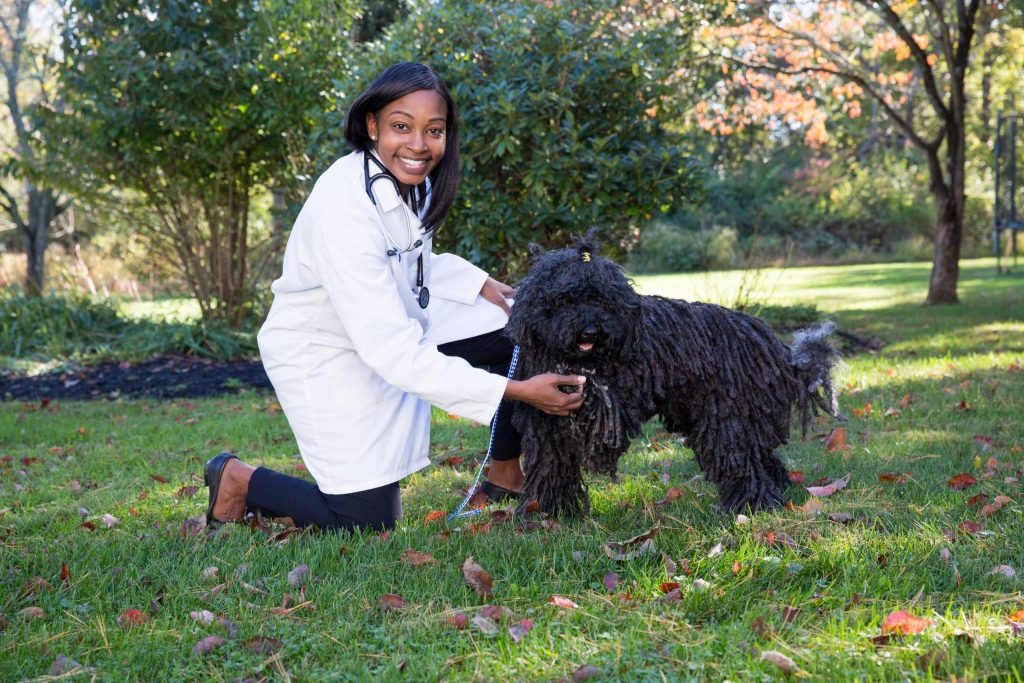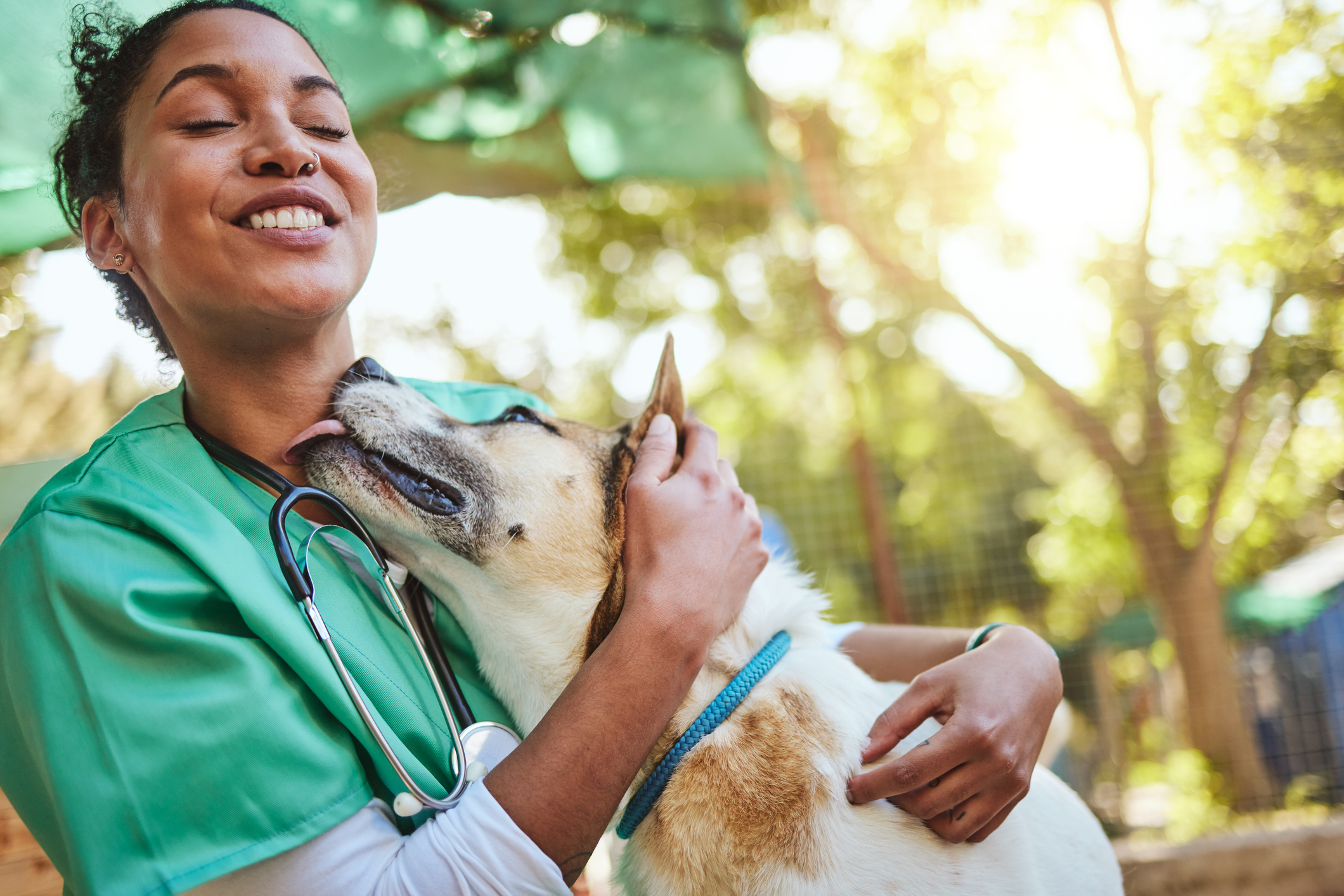Signs your pet needs a Veterinary Cancer Specialist evaluation
Wiki Article
Understanding the Function of a Veterinary Oncologist in Your Animal's Cancer Care
A vet oncologist focuses on treating and diagnosing cancer in animals. Their know-how is vital for establishing tailored treatment strategies that attend to the special requirements of each animal. Early diagnosis can greatly influence results, making their function much more important. Understanding the various therapy options and exactly how these specialists team up with key vets is crucial. What techniques do they use to enhance your family pet's lifestyle during this difficult time?
What Is a Vet Oncologist?
A vet oncologist is a specific vet that concentrates on detecting and dealing with cancer in family pets. These experts have sophisticated training in both vet medication and oncology, allowing them to recognize the intricacies of malignant illness in animals. Their knowledge allows them to perform a variety of analysis treatments, consisting of imaging techniques and lab examinations, to properly identify various types of cancers in pet dogs.In enhancement to medical diagnosis, vet oncologists establish tailored therapy strategies, which may include surgical treatment, chemotherapy, radiation treatment, or palliative care. They function carefully with family pet proprietors to describe treatment options and potential end results, ensuring that family members make notified decisions about their pet dogs' care. Vet oncologists usually work together with other veterinary experts and basic experts, creating an extensive approach to pet wellness. By concentrating on cancer cells treatment, they play an important function in boosting the high quality of life for pet dogs diagnosed with malignancies.
The Importance of Very Early Diagnosis and Therapy
Early diagnosis and treatment of cancer in pet dogs substantially improve the chances of effective end results and enhanced top quality of life. Vet oncologists can apply targeted treatments that may slow illness development and reduce symptoms when cancer is determined in its very early phases. This aggressive technique permits far better management of the disease, possibly leading to longer survival times and enhanced comfort for the family pet.In addition, early discovery usually indicates that treatment alternatives might be much less invasive and extra effective, decreasing the total problem on both the animal and its proprietor. Regular veterinary check-ups and awareness of refined behavior modifications are crucial, as they can assist in prompt medical diagnoses. Proprietors ought to remain cautious and consult their vet at the first indication of problem. Pet Cancer Surgery. Ultimately, a very early medical diagnosis encourages pet dog owners to make educated decisions concerning their pet's treatment, significantly impacting the overall journey via cancer cells monitoring
Treatment Alternatives Offered by Vet Oncologists
When confronted with a cancer medical diagnosis, pet dog proprietors can check out a variety of treatment alternatives supplied by vet oncologists that are tailored to the specific demands of their pets. These professionals generally use a combination of surgical procedure, radiation treatment, radiation therapy, and immunotherapy. Surgical treatment might aim to remove tumors or affected tissues, while radiation treatment makes use of drugs to kill and target cancer cells, frequently provided in cycles.Radiation treatment focuses on utilizing high-energy rays to alleviate and diminish tumors pain. Immunotherapy, a more recent development, takes advantage of the family pet's immune system to battle cancer cells better. Extra helpful therapies, such as discomfort administration, dietary assistance, and palliative treatment, are likewise important components of a complete therapy plan. By examining each situation individually, vet oncologists ensure that the selected therapy straightens with the pet's overall health and cancer type, maximizing the chances of a favorable result.
The Collaborative Approach: Collaborating With Your Key Veterinarian
Cooperation in between veterinary oncologists and primary veterinarians is vital for supplying extensive treatment to pet dogs detected with cancer cells. This collaboration ensures a detailed method to therapy, integrating the specialized understanding of oncologists with the continuous care supplied by main vets. With each other, they examine the animal's health, establish individualized therapy plans, and check the animal's progression throughout the cancer journey.Primary veterinarians typically function as the initial point of contact, determining prospective indicators of cancer and referring people to oncologists for specialized diagnostics and treatment options. Complying with the oncologist's referrals, the key veterinarian plays a key function in managing the family pet's general health and wellness, consisting of discomfort monitoring and supportive care.
Reliable communication between these experts promotes a unified approach, enabling timely interventions and changes to treatment as required. This collective strategy inevitably boosts the quality of care and assistance for pet dogs and their owners during a difficult time.


Supporting Your Pet Via Cancer Cells Care
Sustaining a pet through cancer cells treatment requires a thorough understanding of the physical and psychological difficulties dealt with by both the animal and its proprietor. Caregivers must listen to the animal's transforming requirements, which might include managing pain, readjusting diet regimens, and monitoring adverse effects from therapies. Supplying a comfy, trouble-free setting is essential for the pet's well-being.Emotional support is equally important; owners ought to seek to stay favorable and engaged while knowing their very own feelings of stress and anxiety and unhappiness. Developing an assistance network, including vets, family, and good friends, can minimize some concerns.
Additionally, family pet proprietors should enlighten themselves regarding the details sort of cancer cells and treatment options readily available, promoting educated discussions with veterinary oncologists. Ultimately, a caring approach, incorporated with positive care and assistance, can boost the animal's lifestyle during this tough journey.
Regularly Asked Questions
How Do I Choose the Right Veterinary Oncologist for My Pet dog?
Picking the appropriate veterinary oncologist entails looking into qualifications, looking for suggestions, assessing experience with details cancers, assessing interaction styles, and going to facilities to ensure a comfy atmosphere for both the animal and proprietor throughout therapy.What Should I Anticipate During the First Visit?
Throughout the first visit, the family pet proprietor can expect an extensive evaluation, discussion of case history, analysis examinations, and a therapy plan rundown. The vet will resolve worries and offer guidance for recurring treatment.Are There Any Type Of Expenses Related To a Veterinary Oncologist's Services?
Prices related to a vet oncologist's services can differ greatly based upon location, therapy complexity, and required diagnostics. Veterinary Oncology Services. Pet dog owners must expect expenditures for assessments, tests, and possible recurring treatment plans customized to their pets' needs
Can My Animal Still Get Normal Veterinary Care While Seeing an Oncologist?
Family pets can receive normal vet treatment while seeing an oncologist. Working with therapies warranties complete health management. Regular check-ups enhance specialized cancer care, enabling alternative monitoring of the pet dog's total well-being and attending to other health worries.What Resources Are Available for Pet Dog Owners During Their Pet dog's Cancer cells Journey?
Various sources are offered for pet proprietors steering their family pet's cancer journey, including support system, online forums, academic sites, and financial aid programs, all aimed at offering support, psychological support, and Veterinary Oncologist practical information during this tough time.A veterinary oncologist is a customized vet who concentrates on treating and detecting cancer in animals. They work closely with pet dog owners to explain treatment alternatives and prospective end results, making sure that households make informed decisions concerning their family pets' care. When faced with a cancer medical diagnosis, pet dog proprietors can explore a range of therapy options offered by vet oncologists that are customized to the specific requirements of their animals. Collaboration in between veterinary oncologists and primary veterinarians is vital for offering comprehensive treatment to pet dogs detected with cancer cells. In addition, animal proprietors need to educate themselves regarding the certain kind of cancer cells and therapy alternatives offered, cultivating informed discussions with veterinary oncologists.
Report this wiki page